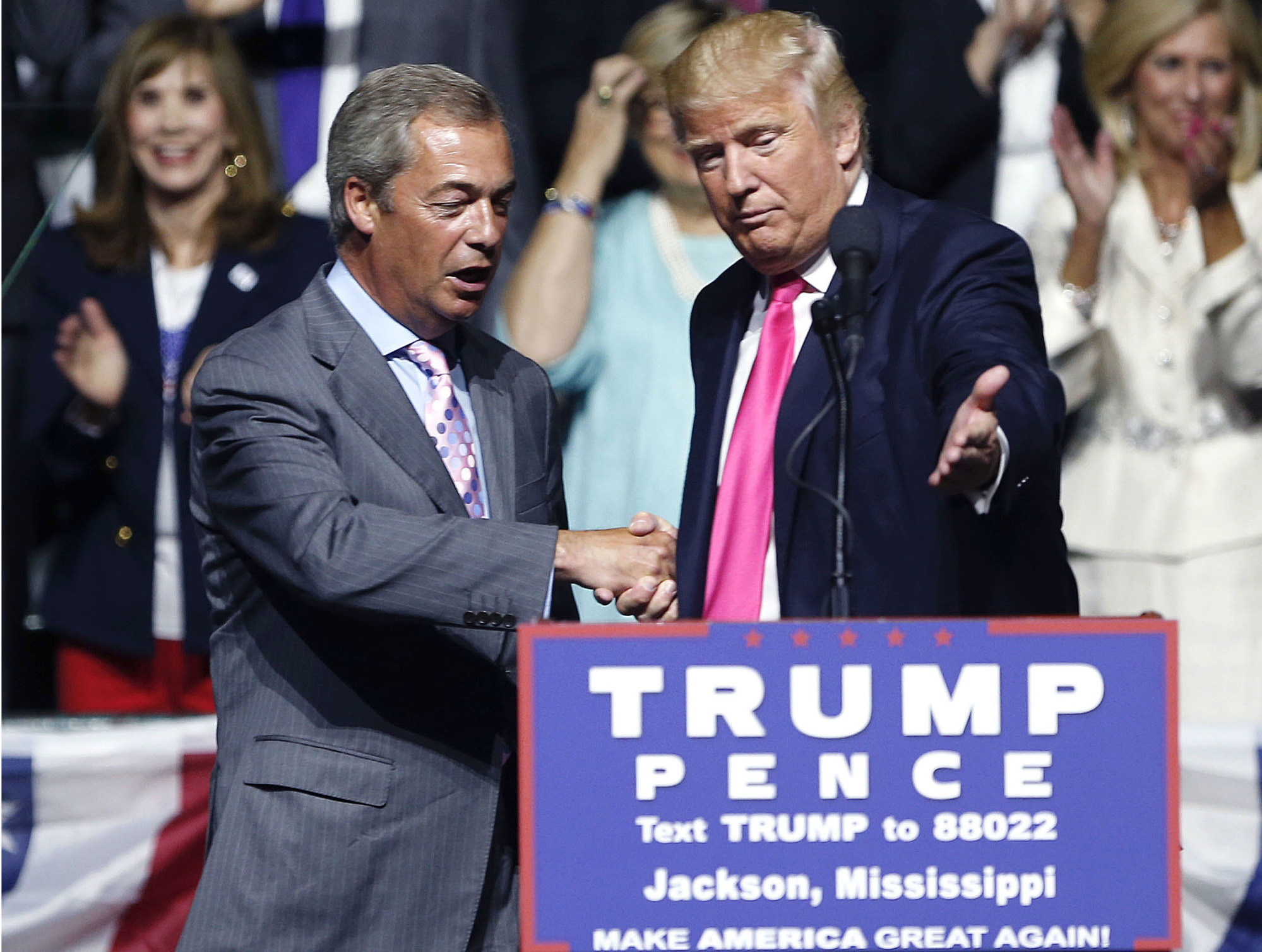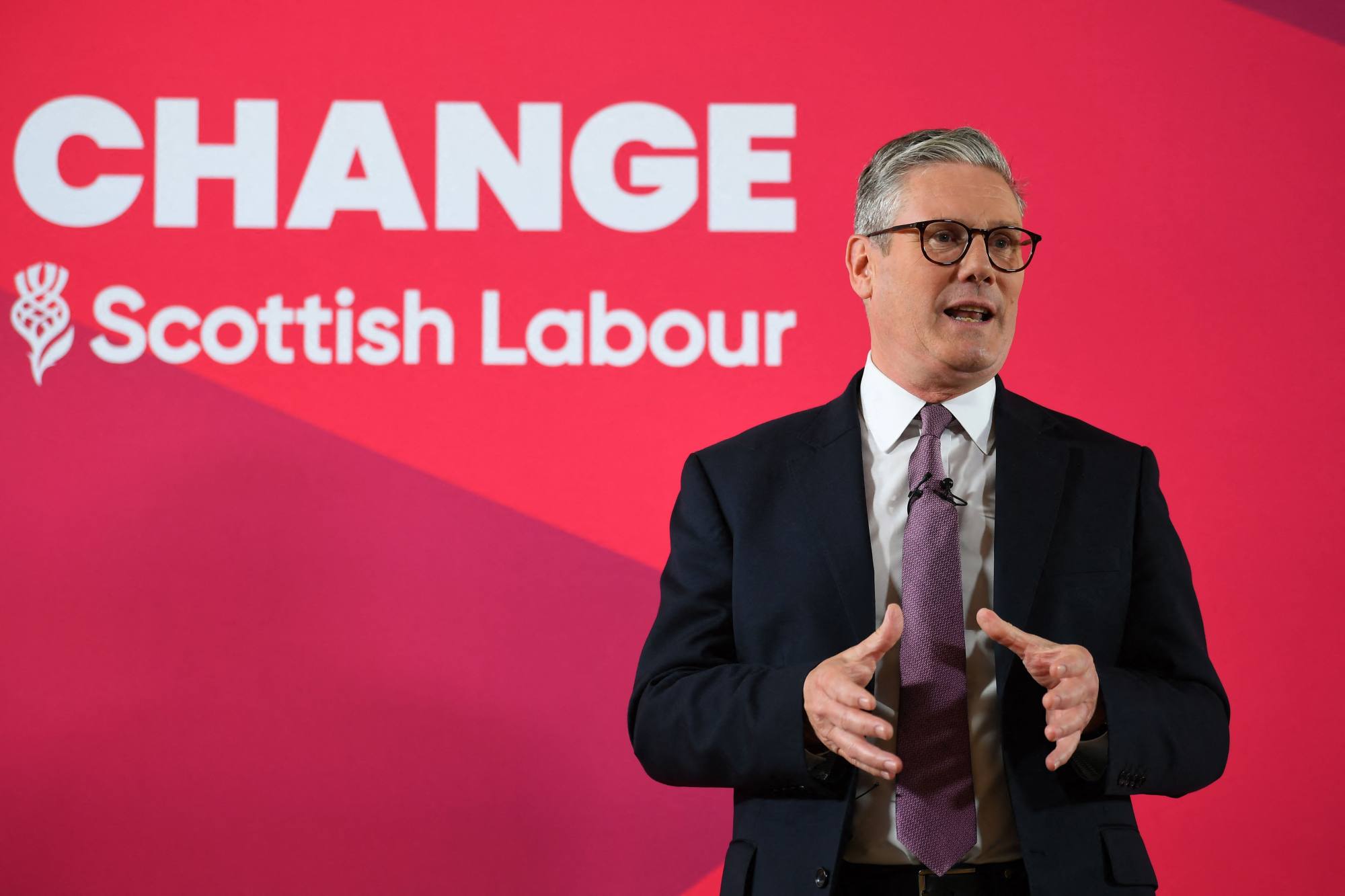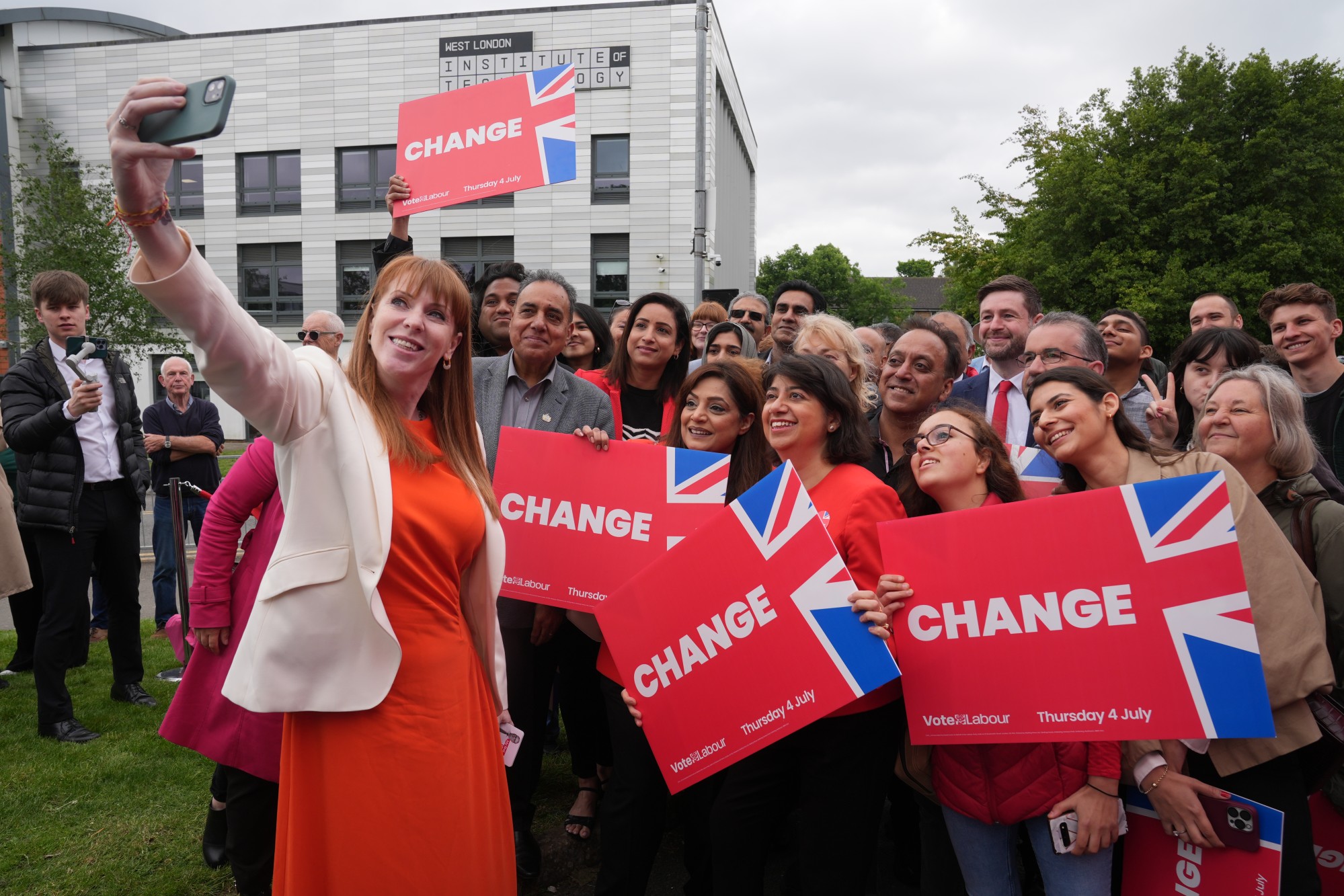Pro-Brexit, anti-immigration campaigner Nigel Farage stepped back into front-line British politics on Monday, announcing he will take the helm of the right-wing party Reform UK and run for parliament in the July 4 election.
While Farage stands a chance of getting elected on July 4, he acknowledged that his larger goal is to lead the “real” opposition to a Labour Party government if the governing Conservative Party loses, as many expect.
I can’t turn my back on those millions of people who followed me, believed in me. I’ve changed my mind because I can’t let down millions of people
Farage said he wanted to lead a “political revolt … a turning of our backs on the political status quo.”
“I can’t turn my back on those millions of people who followed me, believed in me,” Farage said. “I’ve changed my mind because I can’t let down millions of people.”

The favourite is Labour leader Keir Starmer, who pledged on Monday to keep the UK’s nuclear weapons as he seeks to dispel criticisms that his centre-left party is soft on defence.
“My commitment to the nuclear deterrent is absolute,” Starmer said on Monday during a campaign appearance at a military museum in Bury, northwest England.
“Nobody who aspires to be prime minister would set out the circumstances in which it would be used. That would be irresponsible, but it is there as part of a vital part of our defence, so of course we would have to be prepared to use it,” he said.
Britain has been a nuclear power since the 1950s, and both Labour and Conservative governments have consistently supported atomic weapons. Since the 1990s, Britain’s nuclear deterrent has consisted of four Royal Navy submarines armed with Trident missiles.

Starmer said a Labour government would build the four new nuclear submarines that the Conservatives have already committed to. He criticised the Conservatives for defence spending cuts that had given the UK “the smallest army since the time of Napoleon”, the French leader who fought Britain 200 years ago.
He said the world had entered “a new age of insecurity” and “national security is the most important issue of our times.”

Starmer said his entire top team shared his commitment to the nuclear arsenal, even though several members, including deputy leader Angela Rayner and foreign affairs spokesman David Lammy, voted against renewing Trident in 2016.
He also pledged that a Labour government would increase defence spending to 2.5 per cent of Gross Domestic Product, though he has not set a deadline. Sunak maintains his Conservatives will meet the target by 2030.
Defence Secretary Grant Shapps said Starmer had delivered “another empty speech”.
“By refusing to commit to 2.5 per cent defence spending by 2030 he has been unable to show the clear and bold leadership this country needs in uncertain times,” Shapps said.

